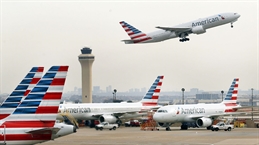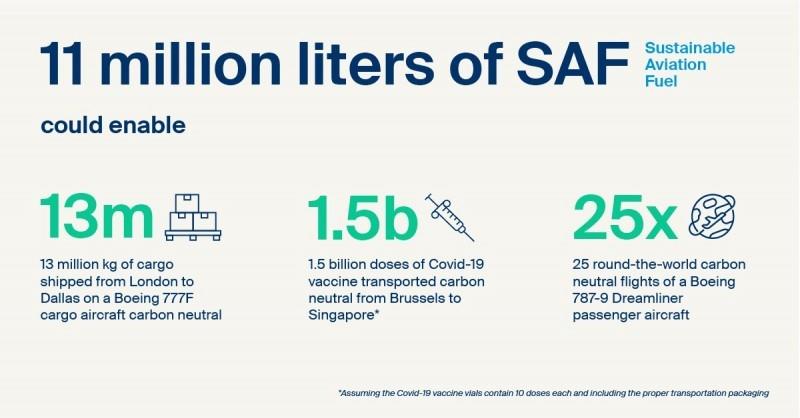
Kuehne+Nagel and American Airlines have joined forces to ramp up their climate change mitigation programs with the two firms recently entering into an agreement to deploy more than 11 million litres of sustainable aviation fuel (SAF).
The 11 million litres (3 million gallons) of SAF would enable a Boeing 787-9 Dreamliner passenger aircraft to fly 25 times carbon neutral around the world, a statement from Kuehne+Nagel said.
It could also transport 13 million kg of cargo from London to Dallas on a Boeing 777F cargo aircraft.

"As part of the Net Zero Carbon programme, Kuehne+Nagel is proactively advancing its sustainable and scalable solutions to decarbonise air freight shipments," it said, noting that its customers can now benefit from immediately available SAF solutions to avoid CO2 emissions of their air freight globally.
SAF is currently the most effective measure to significantly reduce the environmental footprint of aviation and foster a transition to carbon neutrality.
More environmental-friendly products underway
Kuehne+Nagel said its portfolio of sustainable solutions will be further expanded with innovative and easy shipping options.
“The demand for environmentally friendly air logistics services is certainly on the rise. Through the innovative collaboration with American Airlines, we commit to support our customers' sustainability ambitions and contribute to the development and widespread use of alternative aviation fuels,” said Yngve Ruud, member of the Management Board of Kuehne+Nagel, responsible for Air Logistics.
Jessica Tyler, president of American Airlines Cargo and Vice President of Operations Innovation & Delivery, noted that its partnership with Kuehne+Nagel to reduce the impact of aviation is a “kind of collaboration that will drive real change.”
“This strategic, market-based solution will help create a cleaner supply chain and is aimed at accelerating our transition to a low-carbon future,” she added.
SAF is a key element to mitigate aviation's impact on climate change. While the carbon lifecycle of fossil fuels is linear and releases additional CO2 emissions, the carbon lifecycle of SAF is circular aimed at re-using waste or biomass and emissions produced.
The SAF American is using in its operation reduces lifecycle CO2 emissions by 75% compared to traditional jet fuel.
Biggest SAF collaboration between logistics, airline
American Airlines said in a separate release that the agreement in principle is believed to be the largest SAF collaboration between a freight logistics company and an airline, based on the 3 million gallons of fuel it covers.
This volume equates to a reduction in lifecycle carbon emissions from air travel of nearly 26,000 metric tons of carbon dioxide (CO2) over three years.
American Airlines noted that it has been taking delivery of SAF at San Francisco International Airport since last summer and has committed to using 9 million gallons of SAF over the coming three years.
Kuehne+Nagel has committed to reaching carbon neutrality by 2030, meanwhile, American Airlines also made a similar commitment with a goal to reach net-zero carbon emissions by 2050.



